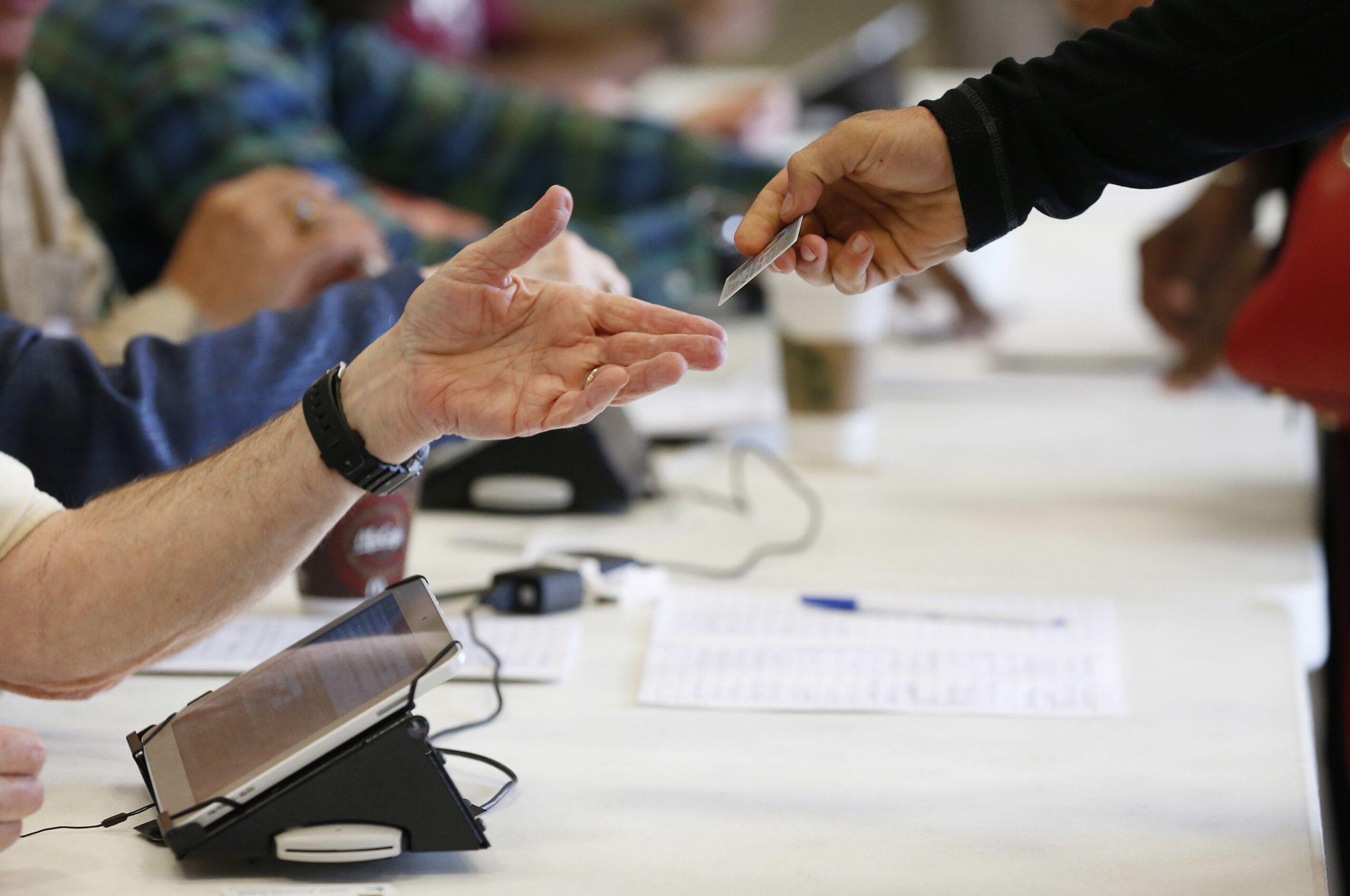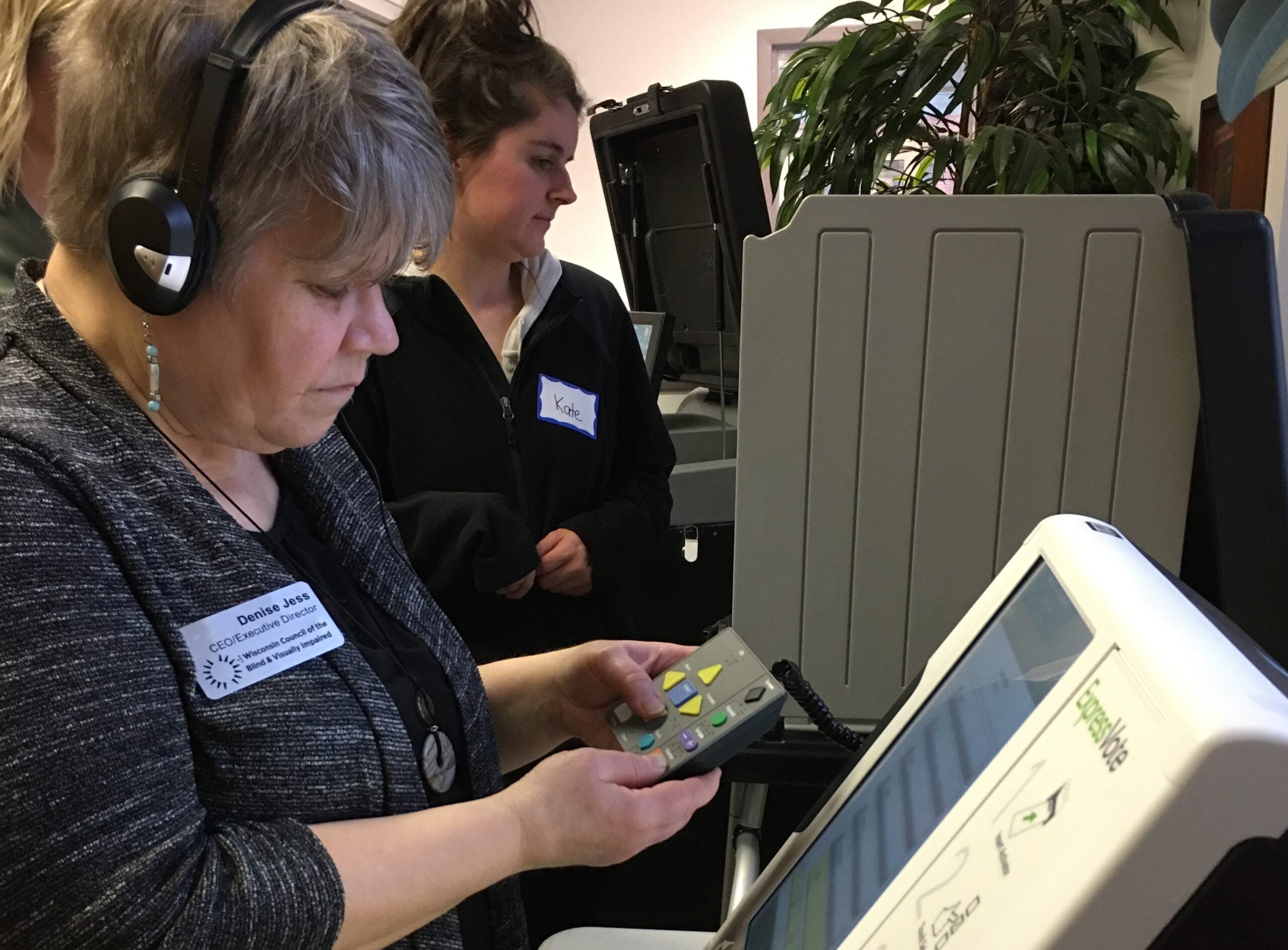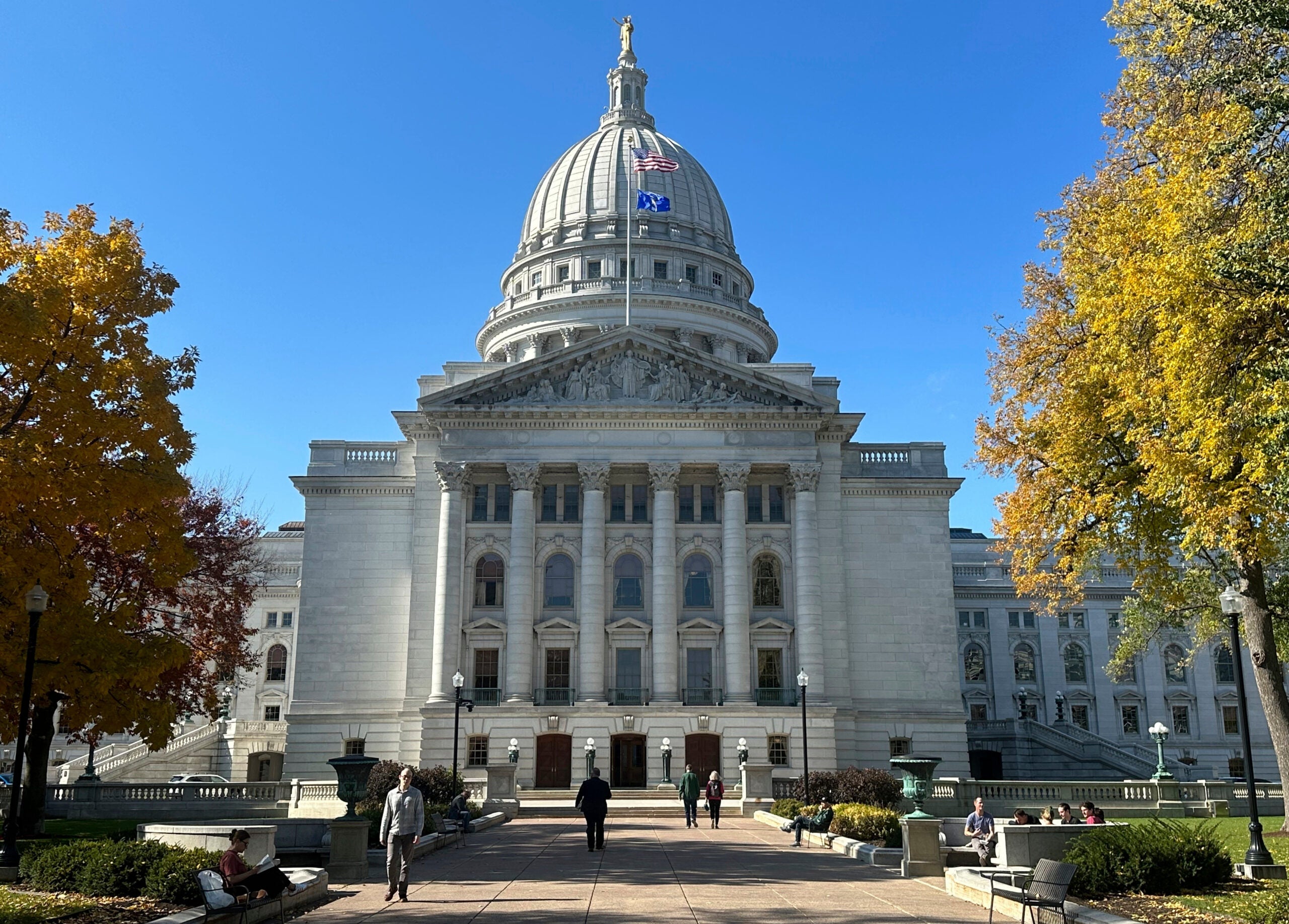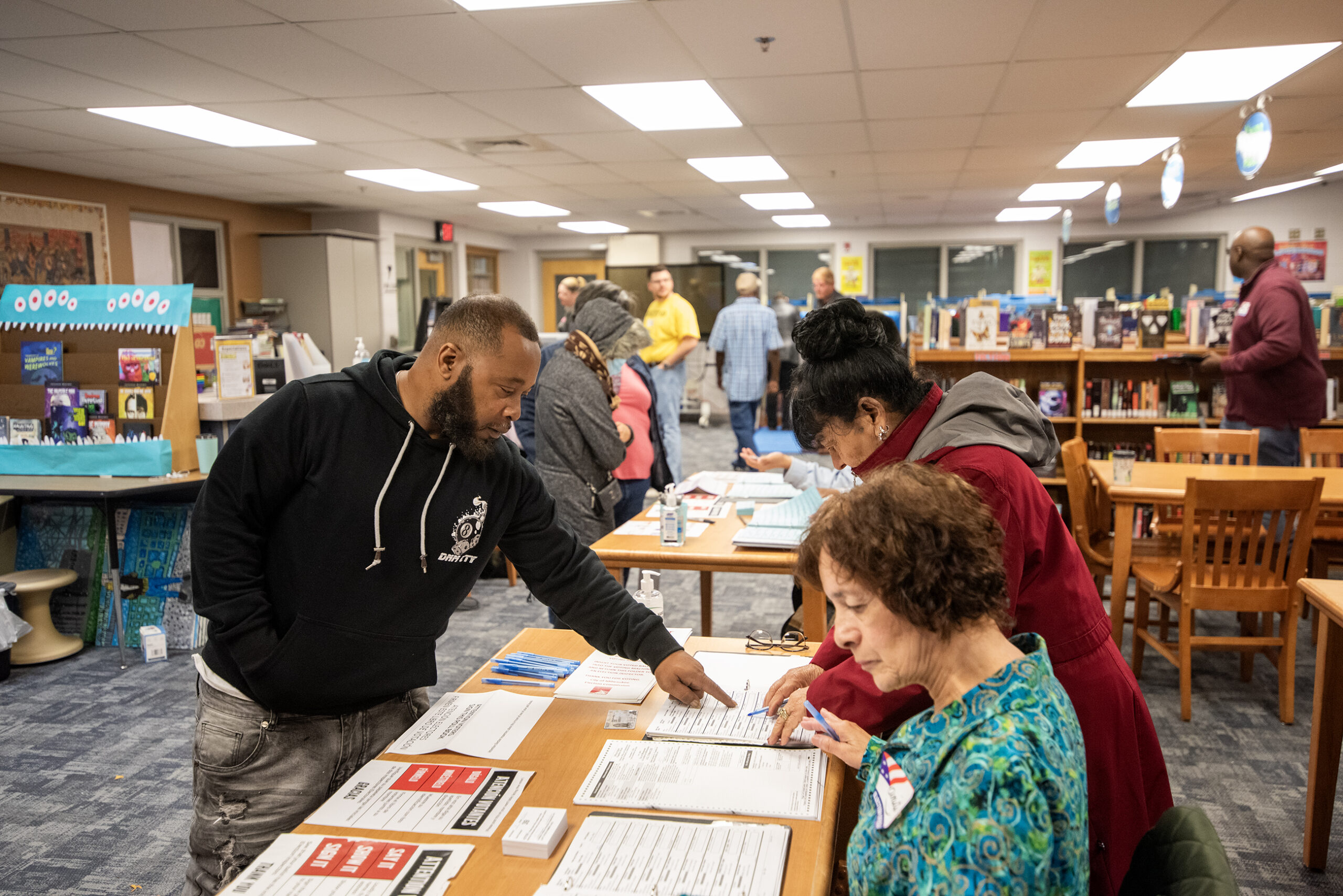A federal appeals court heard arguments Friday on cases involving Wisconsin’s voter ID and early voting laws.
The 7th Circuit Court of Appeals in Chicago heard arguments in Frank v. Walker, a five year old case that has been through many appeals, and One Wisconsin Institute v. Thomsen, a younger case aimed at more than a dozen election-related laws passed in Wisconsin since 2011.
In this latest Frank v. Walker challenge, the American Civil Liberties Union is arguing the state should let people vote using affidavits if they can’t easily get an ID.
News with a little more humanity
WPR’s “Wisconsin Today” newsletter keeps you connected to the state you love without feeling overwhelmed. No paywall. No agenda. No corporate filter.
“We need a strong safety net at the polls to make sure that vulnerable voters are no longer the victims of this never-ending process,” said Sean Young, a lawyer for the ACLU, during arguments.
The state argued the use of affidavits will not protect against voter fraud.
Judges expressed skepticism during arguments in the One Wisconsin Institute case, possibly hinting at the outcome of their official ruling, which won’t be released for weeks or months.
Plaintiffs in that case argued some of the state’s election laws, including restrictions on early voting hours and locations, place a disproportionate burden on minorities, young people and other populations that tend to support Democratic candidates.
But Judge Frank Easterbrook questioned that during arguments.
“A large part of your brief reads as if the argument is when Democrats are in control, they’re free to expand voting, when Republicans are in control, they’re prohibited from making any pro-Republican changes,” Easterbook said. “That can’t be right.”
Easterbrook is part of a three-judge panel hearing the cases. Fellow Republican-appointed Judges Michael Kanne and Diane Sykes also sat on the panel.
The evolution of Wisconsin’s voter ID law from 2011 until today is a vastly complicated series of court challenges, appeals and decisions. The same can be said of early voting. In both instances, courts shaped the laws as they’re known today, as illustrated below.
Interactive timeline by Scott Gordon, Shawn Johnson and Laurel White
Wisconsin Public Radio, © Copyright 2025, Board of Regents of the University of Wisconsin System and Wisconsin Educational Communications Board.






